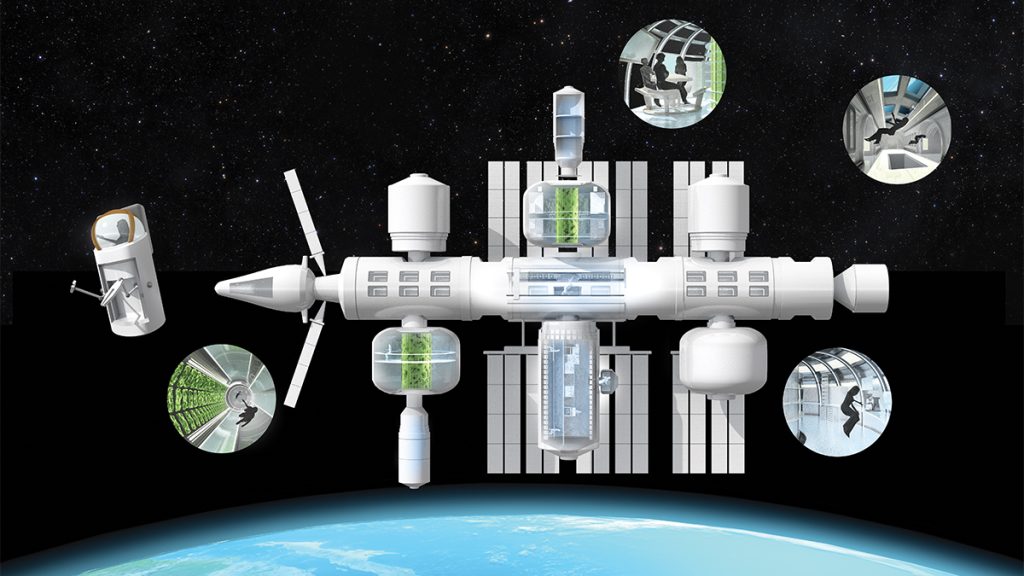As NASA makes plans to decommission the International Space Station (ISS) by the end of the decade, a new era of commercial space exploration is set to begin. Blue Origin, a rocket-builder, is working on launching the first commercial space station called Orbital Reef by 2030. This solar-powered installation will float 311 miles above Earth and offer various amenities such as sleeping quarters, social areas, and research facilities. The design allows for expansion over time, creating a unique vision of life in low-Earth orbit.
One of the most exciting opportunities for visitors to Orbital Reef will be a space walk, offering exceptional views of Earth from the comfort of a capsule equipped with life-support systems. Another feature of the space station is the hydroponic Astro Garden within one of the LIFE habitats, providing crew members with fresh produce. This self-contained system simplifies the process of growing food in space, essential for long-term space missions like those to Mars.
The social hub of Orbital Reef will be the LIFE habitat with a galley, dining area, sleeping quarters, and fitness amenities. The space station will also offer technological advancements such as Wi-Fi and the capability for video calls to Earth. While the sleeping arrangements may be basic initially, with hammocks tethered to the ceiling, the long-term plan includes hotel accommodations for tourists looking to enjoy a comfortable stay with stunning views of Earth.
Orbital Reef will also serve as a destination for scientific research in microgravity, featuring two-tier labs for conducting experiments in a range of fields. From 3-D printing human organs to developing advanced batteries, the space station will provide scientists with the tools needed to make groundbreaking discoveries. With scientific equipment like incubators, freezers, and centrifuges on hand, Orbital Reef aims to be a hub of innovation in space exploration.
In addition to providing a unique travel destination for tourists, Orbital Reef will offer opportunities for visitors to participate in research projects and maintain their physical health through exercise. Regular physical activity is important for mitigating the effects of extended weightlessness on bone density. The space station’s layout includes individual sleeping areas and plans for future hotel accommodations, making it a versatile destination for a range of visitors to enjoy.
With its innovative design and focus on commercial enterprise, Orbital Reef represents the next phase of human space exploration. From exciting opportunities like space walks to practical amenities such as fresh food production and research facilities, the space station promises a unique experience for astronauts, scientists, and tourists alike. As NASA transitions away from the ISS, Orbital Reef is poised to become a key player in the future of orbital enterprise.













